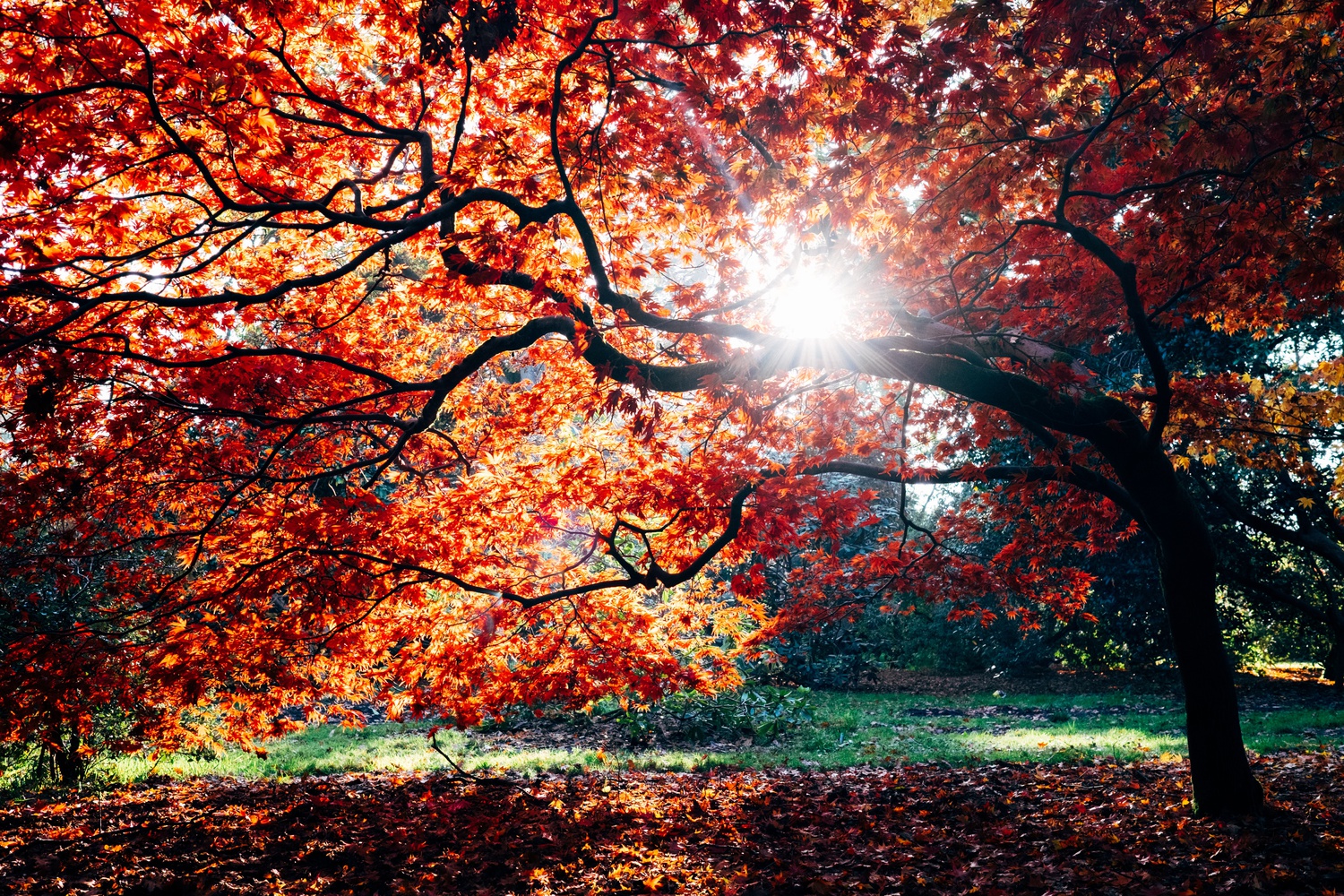
News
Progressive Labor Party Organizes Solidarity March With Harvard Yard Encampment

News
Encampment Protesters Briefly Raise 3 Palestinian Flags Over Harvard Yard

News
Mayor Wu Cancels Harvard Event After Affinity Groups Withdraw Over Emerson Encampment Police Response

News
Harvard Yard To Remain Indefinitely Closed Amid Encampment

News
HUPD Chief Says Harvard Yard Encampment is Peaceful, Defends Students’ Right to Protest
An Autumnal Reflection

Note: All quotes used in this essay were written by Henry David Thoreau in his 1862 essay, “Autumnal Tints.”
“October is the month of painted leaves.”
Thoreau wrote this line in his famous essay, “Autumnal Tints,” for The Atlantic Monthly in October of 1862. An ode to the withering leaves of October, “Autumnal Tints” reflects on the grandeur and beauty of nature, and how each species of flora, at the very end of its life, reaches its richest and most beautiful state.
Autumn is a time strongly felt in the old brick-clad towns and seaside cities of New England, from its wooden farmhouses set on misty patches of grass to the scent of burning wood that flavors the air. And, as this crisp air reaches Harvard College, the year commences its closing act. From the cold winds that tear past Widener Library to the trampled brown leaves on the concrete paths in Harvard Yard, the College has seen many autumns. The noble turkeys wander through the Yard, stepping on the brittle fallen leaves. The old oak and maple trees creak and shudder with the shivering wind, yet the brick buildings remain unmoved.
“Their rich glow now flashes round the world.”
Naturally, autumn is a time of remembrance, of reflecting on the years past. During the fall months, I find myself recalling my ever-distant memories of the season. When I was young, my Vermont grandparents taught me how to tell when the leaves would start to change: cold nights and warm days –– then the first brushes of orange would streak through the branches above. Even today, in Cambridge, their words remain true.
However, autumn wasn’t always a time of reflection for me. When I was young, fall in New York centered around the Halloween decorations that would line the gridded neighborhoods of Manhattan in October, the sound of “It’s the Great Pumpkin, Charlie Brown” playing on the TV, and the brisk air that would tint our noses red as we walked to school.
For Halloween night, my family and I would often drive up north to visit my grandparents in their small riverside town in Vermont — a trip I would relish in its autumnal feeling. My grandparents’ clapboard house would be full of jack-o’-lanterns, its yard studded with smiling ghosts dancing in the wind. Every year, my grandfather would enter the room in his weathered skeleton mask in a futile attempt to scare my sister and me; we were quite used to his tricks.
In Vermont, the leaves in the town were brighter than I’d even seen; rusty oranges and deep reds contrasted against the cool purple of the evening clouds. One year, my dad and I walked through the pouring, cold rain, huddled under a broken umbrella, to make the most out of trick-or-treating under a dark Vermont sky.
“As fruits and leaves and the day itself acquire a bright tint just before they fall, so the year near its setting.”
Since these early memories of autumn, I have grown in many ways, but I still visit my grandparents every year in that small Vermont town. I still breathe deeply when I notice the faint scent of burning wood in the air. I still enjoy seeing the blades of grass freeze over in the early morning frost.
Cambridge, with its uneven brick sidewalks, iron-wrought gates, and ivy-covered walls, still reminds me of that old essence of autumn. Farmers’ markets materialize on the weekends, selling fresh gourds and cider, mushrooms and sourdough bread. Pumpkins and skeletons begin to line the streets. Crows squawk and scream over the undulating hills of the almost two-centuries-old Mt. Auburn Cemetery. In these moments, the echoes of that old Halloween feeling are the loudest.
“October is the sunset sky; November the later twilight.”
Yet, even more than the excitement of Halloween, autumn is a time of natural splendor; the leaves will soon assume their crimson hues of the fall. Summer has gone, winter is coming; another year has gone by, but another one is on its way.
It’s not sad, necessarily, but it is beautiful.
As I write this now, sitting next to the cold glass of my dorm room window, I see the wind push and shake the tall, old trees outside. It was warm today, but tonight it will be cold. The leaves will soon change, and I look forward to when they do.
–– Staff writer Thomas Ferro can be reached at thomas.ferro@thecrimson.com.
Want to keep up with breaking news? Subscribe to our email newsletter.
